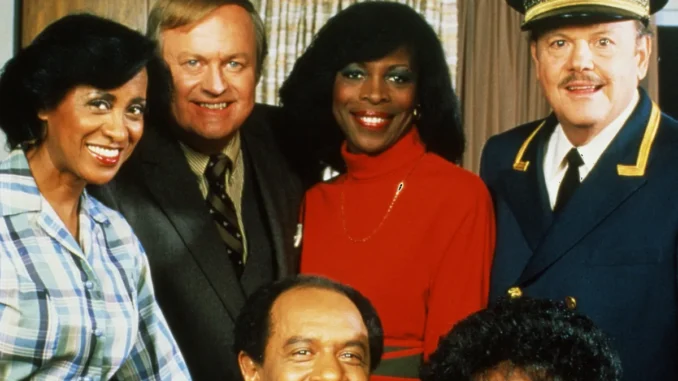
The jeffersons: 5 powerful lessons from one of its most disturbing, yet memorable episodes

An near-violent argument ensues, escalating until the Klan leader clutches his heart and collapses, suffering a heart attack. Ironically, the only person trained in 1st Aid & CPR is George, who begrudgingly saves his unconscious adversary in the presence of all.
The shocking twist to the moment occurs when the paramedics arrive to transport the Klansman to the hospital. As he leaves, his son, suspended in disbelief, informs his revived father that George (a Black man) is the man who saved his life. Looking over at George, his father turns his gaze back upon his son and weakly reprimands, “You should have let me die.”
Think on that for a moment before I continue.
The attendees leave, having seen George’s selfless act, despite the character of the man he saved. Confused, yet enlightened, his son also abandons his lifelong beliefs and walks away while another Klansman failingly attempts to pass out fliers to the now uninterested attendees who continue their departure en masse.
My family sat in stunned silence for the entire 3rd act of that episode, mostly in response to the Klan leader’s position after knowing he had been saved by a “n-word”; something he’d have to carry with him for the rest of his days.
Although the lessons were powerful and easy to extract from that episode, it didn’t prevent my family from discussing it in great detail for the better part of two hours (something I’ll always love about my family that carried over into the post-movie discussions I lead with my own family to this very day).
Here are my main takeaways from this widely talked about episode:
1. Racism is taught. One of the first things my father expressed to me. Children respect and believe heavily in the teachings of their parents. Although we are born to instinctively NOT see color, it doesn’t take much to pervert that innocence and change a child’s life-trajectory.I have a co-worker who was raised to be racist and I love her dearly. Why? She blatantly defied her father’s teachings and readily accepts any and everyone for the content of their character. She is one of my best friends to this day.
2. You can’t judge a book by its cover. Give people more credit despite their background/appearance/race. In that episode, despite the occupations and education of the all (but one) white audience, the only person trained to save someone’s life was the African American attendee. Speaking from experience, I’ve been present during medical emergencies and I was the last person people looked to or expected to see respond when that famous phrase rang out, “Is there a doctor in the house?”
As a side point, there have been many cases in history where African American, plain-clothed doctors and nurses have been delayed in providing emergency medical attention because people didn’t believe their claim to be trained professionals. Or worse, trust them. For those who can recall, in the 1979 mini-series “Roots: The Next Generation”, an elderly white man died because the townsfolk refused to allow a black doctor to give him the treatment he urgently needed. They lost him, attempting to transport him to a distant medical center, of sorts.
I was particularly proud to see that he (George) “stood out” in more ways than one in that instance. That episode alone was one of the reasons I jumped at the chance to receive medical training when the opportunity later presented itself.
3. Compassion Prevails. One of more subtle points occurred in the aftermath of the climax that goes undiscussed, no doubt. It was the effort of the #2 leader to pass out literature, hoping to maintain the interest of the remaining attendees as they vacated. The “White Power” rhetoric struggled to maintain its position, which made things even worse for their reputation (at least at that particular meeting). Just moments prior, a (Black) man exhibited his willingness to look past the creed of this group and save its leader. His display of compassion in the midst of persecution overshadowed anything anyone could hope to say in their recruiting efforts, particularly about “colored folk”.
Jefferson taught EVERYONE that day that love (of and for your fellow man) does indeed conquer all.
4. People don’t change. On the heals of my previous point, I’ll make this point brief: You’ve got to have some seriously deep-seeded evil enveloping your soul to hate someone who just saved your life. So much so, that you would rather die than know your survival came about by someone you would just as soon hang by a noose, if you could get away with it. I especially love knowing that mouth-to-mouth resuscitation was used during the process. If I were George, I would have made CERTAIN he knew that MY “black” lips were on him before he left. You be sure to share THAT one during your next barbershop talk with the good ol’ boys.
